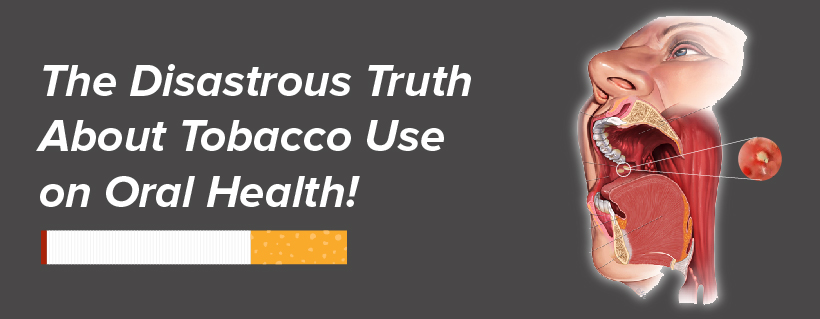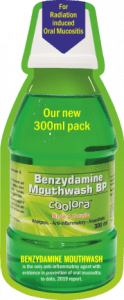Menu

In case the manufacturer’s warning on the label wasn’t clear enough, I’ll repeat it once more, “tobacco is bad for your health”. It is common knowledge that tobacco use causes oral and lung cancer. But, the harmful effects don’t just stop here.
As per the Centres of Disease Control and Prevention, smokers are four times as likely to have poor oral health than non-smokers. In fact, over one-third of smokers have a minimum of three dental health issues. Tobacco comes in many forms – cigarettes, cigars, and chewing tobacco, to name a few. They can be broadly categorized as smoke and smokeless products.
Regardless of the form, they all wreak havoc upon your oral health. While quitting isn’t easy, it’s the only way to reduce the risk to your teeth, mouth, and overall health.
When you inhale while smoking, the smoke stays in your mouth for some time before it’s expelled. Cigarette smoke has more than 4800 chemicals. And 69 of them are known to cause cancer! Smoking can also,
Smoking cigarettes, cigars, and pipes can also cause gum disease. It does so by damaging the connective tissue between the jaw bone and the teeth. It also disrupts the normal functioning of gum tissue, resulting in higher susceptibility to infections.
Smoking tobacco causes:
Dental problems are a given for a smoker. If you think you cannot quit, even gradually decreasing the number of cigarettes you smoke in a day can also help.
Smokeless tobacco products are mistakenly considered as safer alternatives to smoking due to the lack of smoke. However, that isn’t the case. Products like snuff or chewing tobacco are designed to be placed inside the mouth for an extended duration. This irritates your gums, causing them to recede. As a result, it makes you more prone to gum disease, tooth decay, and sensitivity.
In addition, they deliver a higher dose of nicotine, making them even more addictive than smoking. Some flavoured products contain sugar, which also increases the risk of acid attacks on teeth.
When you chew tobacco, it:
E-cigarettes are electronic devices that allow smokers to inhale nicotine from an aerosol. These cigarettes use a reusable cartridge in place of tobacco. They are powered by batteries and contain a heating element for heating the cartridge and producing an aerosol.
The act of smoking e-cigarettes is called vaping. Vaping is touted as an effective solution for quitting smoking. But, no conclusive research can back this claim. While vaping is comparatively less harmful than regular cigarettes, it can still cause cancer and other health complications.
E-cigarettes eliminate tobacco use but still deliver nicotine. However, nicotine itself is what causes addiction. It also leads to increase in virulence of antibiotic resistant bacteria like MRSA. Moreover, some brands contain formaldehyde, which is a probable human carcinogen.
While the technology is being improved, sore throats and severe burns due to e-cigarettes have also been reported. In addition, there have been cases of e-cigarettes exploding while charging and during use. So, while they seem safer than cigarettes, there are other risk factors to keep in mind.
Tobacco consumption in any form affects many parts of your body including the mouth. While quitting can be extremely difficult, its the only way to avoid its harmful effects. If you want to quit smoking, feel free to consult your doctor. He or she may recommend nicotine gum or patches to help you wean off. You can also consider joining a support group to help you kick the habit.


| PRODUCTS | QTY | PRICE | VALUE in INR |
|---|
| PRODUCTS | QTY | PRICE | VALUE in INR |
|---|